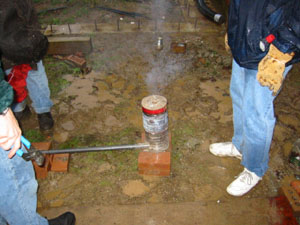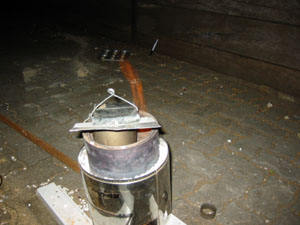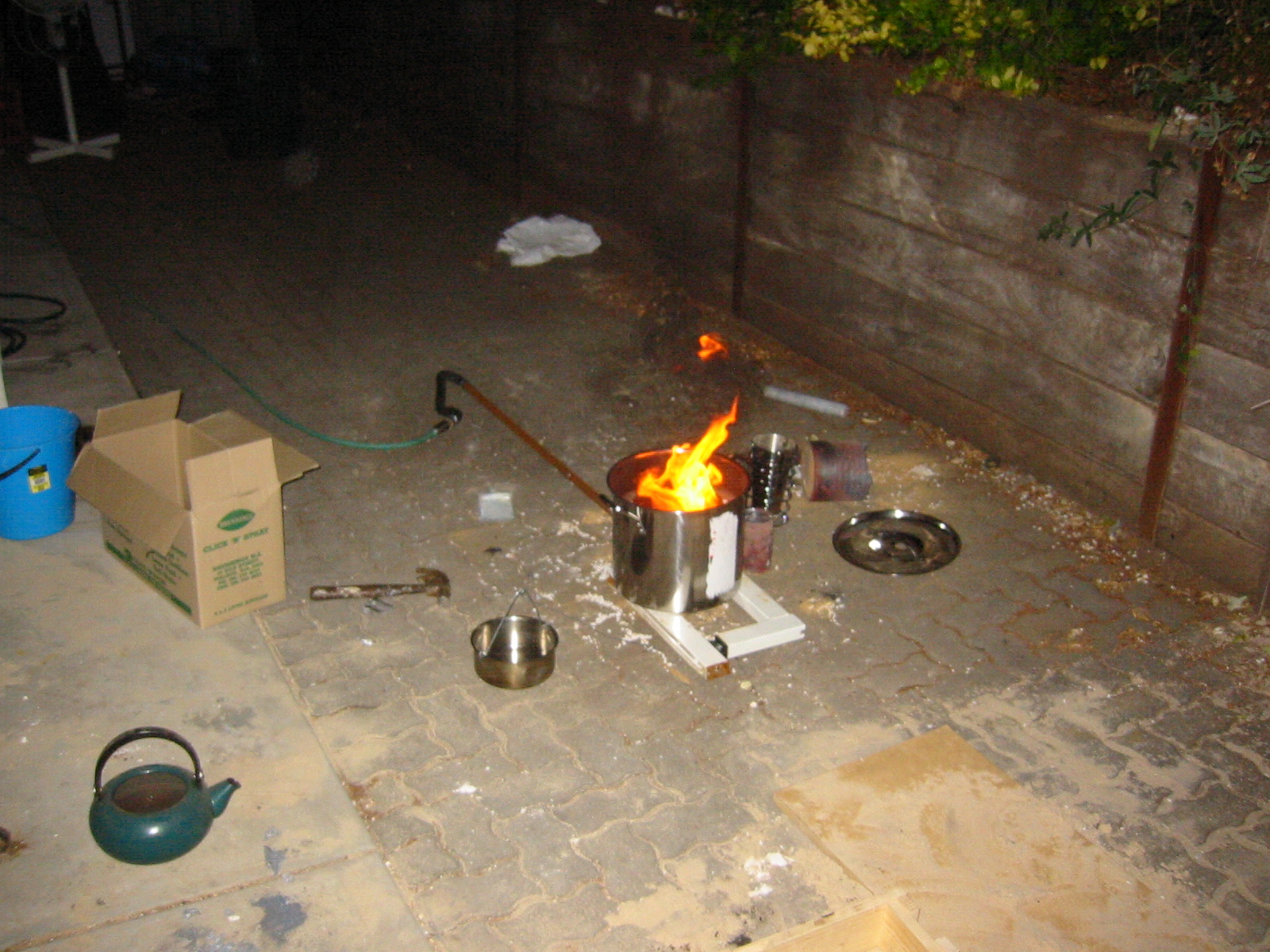
Coffe Can Foundry (Charcoal)
If all your castings require less then 200-300 ml of molten metal then I would suggest a Coffee Can Foundry. Literally what the name would suggest two coffee cans lined with refractory and fired from charcoal and a forced air source.

|
My First Perlite Foundry (Charcoal)My second charcoal fired foundry, and my first Australian foundry was a supper cheap and temporary design. It did not even use refractory; instead using a perlite insulated double hulled design. |

|
My Second Perlite Foundry (Charcoal)The perlite double hull design can be made fairly large. My second Australian foundry had a capacity of almost 400ml of molten aluminium with a melting time somewhere from 35-45 minutes. I am guessing that melting time could also be cut way down with a more powerful forced air source. Given a different crucible I think it could have easily handled 600-700ml of molten aluminum and even more if working with Zinc. |
|
|
Switching to Propane (Propane)On one of my visits back to Seattle I wanted to do some casting. Since the original coffee can foundry got thrown away when I moved to Adelaide I needed to build another foundry. I used the chance to switch to propane. I used a stock pot and furnace cement to basically make a larger version of the coffee can foundry then used one of the Reil propane burner designs to run it. All in all I am very happy with propane, finding it much cleaner and easier to work with than charcoal. |